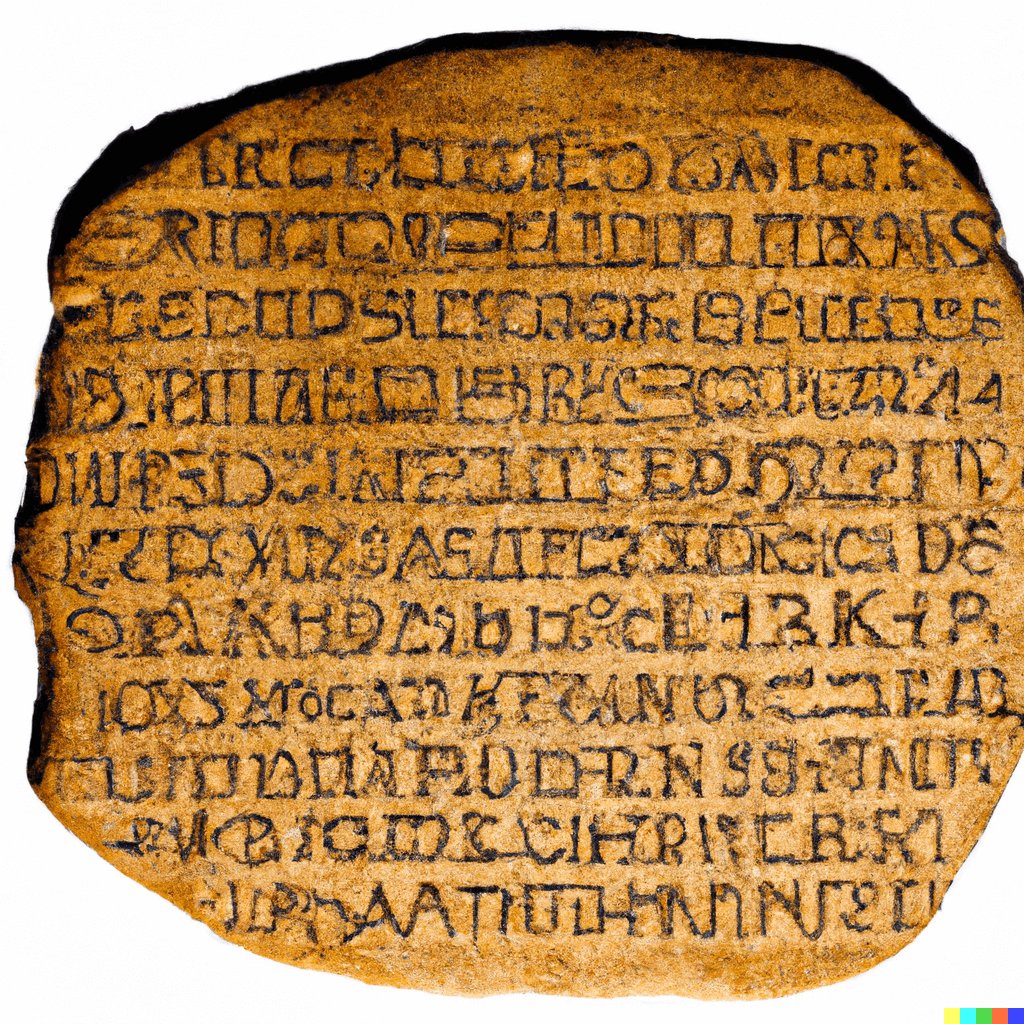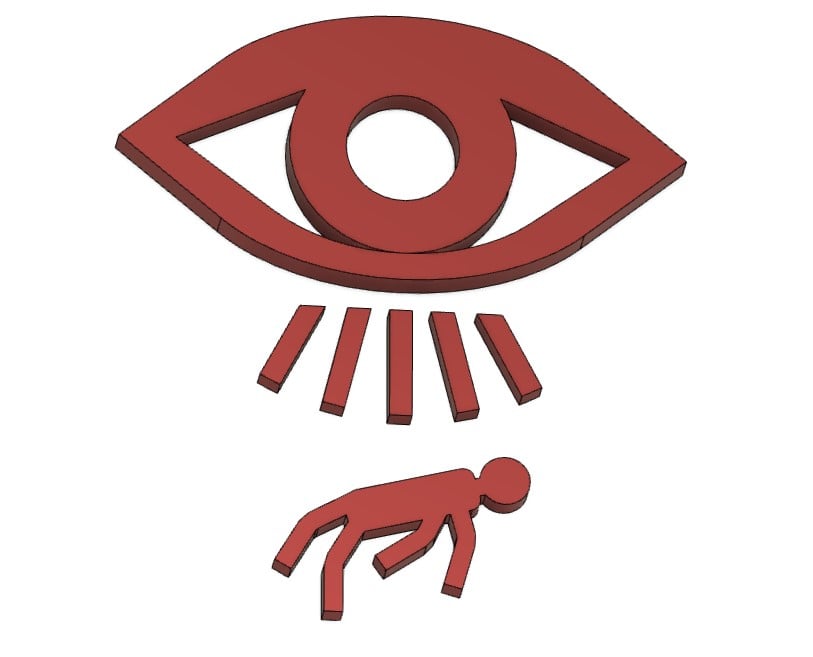Disclaimer: we still have pragmatic reason to follow the evidence suggested by our best scientific theories. I’m just poking fun at scientists in the spirit of Hume. There’s no guarantee that the future will resemble the past, and even our best scientific theories are amenable to future evidence.
Except this isn’t a criticism of the scientific position…
We absolutely do not expect our instruments and our math to be reliable in the future. Literally everything about science is done with the understanding that we’re still figuring things out and that our tools and models will change as we learn more, and that we will learn more as our tools and models change. The problem isn’t posting a philosophical meme, the problem is that it’s a bit ass-backward.
Evolutionary ecology and multilevel selection theory have undergone massive changes just in the course of my career. I remember when the news that mitochondria and chloroplasts had their evolutionary origin as independent and then symbiotic organisms really started to penetrate public awareness. I remember when evolutionary developmental biology started to pick up steam. There’s far too many books about all of those kinds of things and new papers being written every day. That’s not even touching on the world-view changing developments in physics, material sciences, social sciences, and so on. We update our models as we learn - that is what learning is.
Fair enough, I concede that the meme falsely portrays scientists as being unaware of this limitation. But maybe that’s where the humor comes in; although I don’t think many people see the meme as funny. Maybe I should have used a different format…
For these kind of pedantic complaints about the scientific method, I just propose an experiment where I push a boulder off a cliff they’re standing under and see what they think about repeatable, demonstrable evidence.
Somewhat tangential, but this reminds me of an oft-cited factoid. Centuries ago, in Europe, everyone accepted the fact that all swans are white. Europeans had observed swans for years and they were, without fail, all white. There was so much overwhelming evidence that swans are white that it became obvious. Later, during the age of exploration, Europeans went to Australia and realize that not all swans are white. A single black swan flew in the face of all prior evidence (pun intended). We could say something similar about the shift from Newtonian physics to Einstein’s general relativity.
I believe in following science–especially the theory of gravity if a boulder is above my head. However, people forget that science doesn’t investigate the foundations of science itself. Things like causation, mathematics, and continued unchanging laws are presupposed. We humans have an incomplete picture and so have no choice but to work based on the information available, but we shouldn’t forget that all we have is an approximation of reality.
“All observed swans are white” is not incompatible with the unobserved existence of a black swan.
Of course we aren’t omniscient and there’s a possibility of an anti-gravity anomaly stopping the boulder, but not standing under them is still the most rational response to the data we do have.
Well, if you don’t like that example, take the actual refutation of Newtonian physics by Einstein. The point remains the same.
And if you’re willing to concede our fallibility, then I think I’ve addressed all your concerns in the disclaimer I wrote under the meme.
Both Newtonian and Einstein’s physics suggest a boulder pushed off a cliff will fall, as far as I know. The observable data is more intrinsically valuable than the theories using them.
Fallibility isn’t something science shies away from. There’s nothing more exciting in the scientific community than when science is wrong about something.
Philosophers grandiosely proclaiming that nothing is knowable is fine, but it’s not what put a man on the moon.
We aren’t even disagreeing now but you would rather argue than grasp the point. Point being, the presuppositions of science are not themselves within the purview of science. All our best theories start with axioms.
You continue to talk about the usefulness of science, which I conceded before you ever typed your first comment. At this stage, I have to assume that you’re being willfully obtuse.
You said you were poking fun, I poked back. I appreciate the conversation, I enjoy thinking about these things.
I found your meme very funny as a scientist who enjoys philosophy. I will correct you though, science absolutely investigates the foundations of science itself. The average layperson sees the term “laws” and believes that science has decided this is 100% the way things work and it will never be investigated again, but science itself is very aware of how often new information invalidates old information. The way the atom has been modeled over the years is a prime example, each time scientists are presented with new data the model is changed. I was taught in my freshman year to never say a law was “proven” but to say it had “overwhelming supporting evidence” instead, because that leaves room for the possibility of evidence to the contrary. I’m not sure what you mean by causation being presupposed.
I’m not a mathematician, so I’m not sure how concrete mathematical proofs are considered, or if there is some room for interpretation/new data.
Well at least someone got a laugh. Reading your comment, it seems as though you think 1) Science can investigate its own foundations and 2) Scientists are aware that our best theories are never 100% confirmed.
I have no qualms about 2), but let’s understand “the foundations of science” (which I admit is vague) as being consistent with basic axioms like A.) the immutability of mathematical truths (e.g., arithmetic), B) the ability to accurately observe/measure events in the world (quantum mechanics complicates the picture here but I also mean large-scale events), and C.) basic propositions like “every event has a cause”. I do not think these sorts of questions are within the purview of science. Actually, as a philosopher, I think these questions are within the scope of philosophy.
I thoroughly enjoy philosophy and it was central to my degree in political science, but you have crazy mouth.
Please feel free to launch a vehicle outside of our solar system and tell me that Philosophy has a better understanding of the physical universe than NASA.
Why would any scientist worth their salt be mad about that? Science is constantly trying to find new things that may disprove old things, that’s basically half of the point (the other half is the discoveries made along the way).
There are only very few things out there where scientists are sure they will never change and for all of those we know for a fact that they cannot change, like the fundamental axioms of math.
Fair enough, the meme wrongly implies that scientists don’t know about this uncertainty or would be mad to learn about it. That said, my impression is that most scientists, even if they are aware, are not philosophically inclined enough spend time thinking about it. Which is why we still have a philosophy department.
I’m probably in the Hume camp of skepticism and I like this meme :)
Dude, like, math is the only thing that I’m confident to say will stay the same in a million years. You could have picked any other example, like biology or even chemistry, but picking math for saying “things could change in the future” is one of the worst (if not the worst) example you could make.
You should google “calibration”
I think about this a lot. There are places you see this logical flaw that are actually more concrete. A good example is retirement accounts. There is an implicit assumption that even safe investments will go up in the long term.
The fuck does this even mean? Does it try to imply that the specific equipment used for science has to keep working indefinitely?
Science is better if use many different sets and types of equipment. Sometimes we discover the equipment was flawed, or less capable than one could hope for.
Don’t post philosophy memes here, got it lol. Well, I can’t say this reception is entirely unexpected.
Philosophy memes are cool, in fact I’d love to see more of those. Philosophy memes that incorrectly make fun of other branches of science, not so much. Let’s get some Plato’s Cave in here, or make fun of Freud saying one thing but meaning your mother. Let’s not try to delegitimize other branches of science by pointing out solipsism.
To be fair though I do think it’s fun to have conversation around this matter, like discussing Brain-in-a-vat theory, where you can just accuse your opponent of being increasingly less real as the discussion goes on. But in the modern age of mis- and dis-information, you have to be careful how you approach those subjects. In this particular example it seems like you’re calling out the scientific method as Fake News, and while it’s a bit funny, it’s also a hot button topic for folks these days and will frequently be taken the wrong way because tons of idiots have ruined it for you long before you made this meme. Let’s please not give people another reason to distrust hard science.
If we can’t talk about hot button issues then what is the point of an anonymous forum? I might as well just regurgitate whatever view is palatable and bask in the universal agreement. While I have posted memes like that, the conversations in this post have been far more interesting.
Also, I anticipated any allegations of being a science denier by writing a disclaimer under the post. But my guess is most people either didn’t read that or don’t care.
Its a pretty poor philosophical premise. Math by its nature is reliable mainly from its abstract nature. For it to become unreliable would require upheavals in reality. If you pick up one of something and put it in an empty box and pick up one more and put it in and the box contains anything but two then we have lost object permanence. As for instruments they have had issues with reliability and improvements or new instruments are made. Im not even talking about technical things but the metric system originally relied on some model artifacts kept in France but it was recognized that even the stable platinum–iridium it was made of does degrade over long periods and the SI standard that evolved from it measures everything utilizing the fundamental constants of nature and if this proved unreliable (and to be clear they moved to SI when seeing the difference in the model artifact took our most sensitive instruments) then it would again change. Science is not a religion and it will change based on any more accurate methods or information that it gets.
For it to become unreliable would require upheavals in reality.
Or at least our conception of reality. But I think you’ve hit the nail on the head here. Math is so reliable that it’s unthinkable that it could ever change or lead us astray; and so most of us don’t think about it at all. But (and I can already feel eyes rolling) what are numbers? Why are they universally and necessarily true? Are we inventing new mathematical truths or discovering them? These are not questions for science.
Numbers are just an abstraction for physical properties. Aliens with no contact with earth will have no idea what our Arabic numerals mean, they won’t recognize a 3 or a 7 as being numbers. But they will surely know what 3 means, as a trio, that it is one and one and one.
When we get into things that have units, like the speed of light for instance, things get a little muddy because we have no concise and effective way to define our units to an outside perspective. Sure, c may be equal to around 300 million meters per second, but what is a meter and what is a second to someone who has no reference to either? It’s at this point that I think math becomes more of a reflection of ourselves. We define things in units and with relations to other objects and other units because we have that frame of reference, and by defining those units and using them in relation to other maths we’ve created this grand interconnecting web of mathematical axioms and theories and proofs and units that all refer to four other theories and axioms and units in their own definitions. But at the base of that web holding it all together are numerals. Two is two no matter what it is two of, and that is an illustration of physical properties of the universe irrespective of units or home culture. Two is two is two even if it’s called dos or İki or दो.
I would argue that we, humanity, do not invent math any more than we invented gravity or atomic weights. We merely discover principles and relations between principles and define them to the best of our understanding.
They aren’t universally true because they are just names for things that are universal like quantity. when you have one item you can make any name for the word one but however it is defined it will be one and and if that where not true it would not be simply our concept of reality it would be our reality or our perception of reality which amounts to the same thing. If I find one day that I see four lights but there actually are five then either reality has changed or I have to wonder if I am mad. Or some cardasian is trying to drive me mad.









